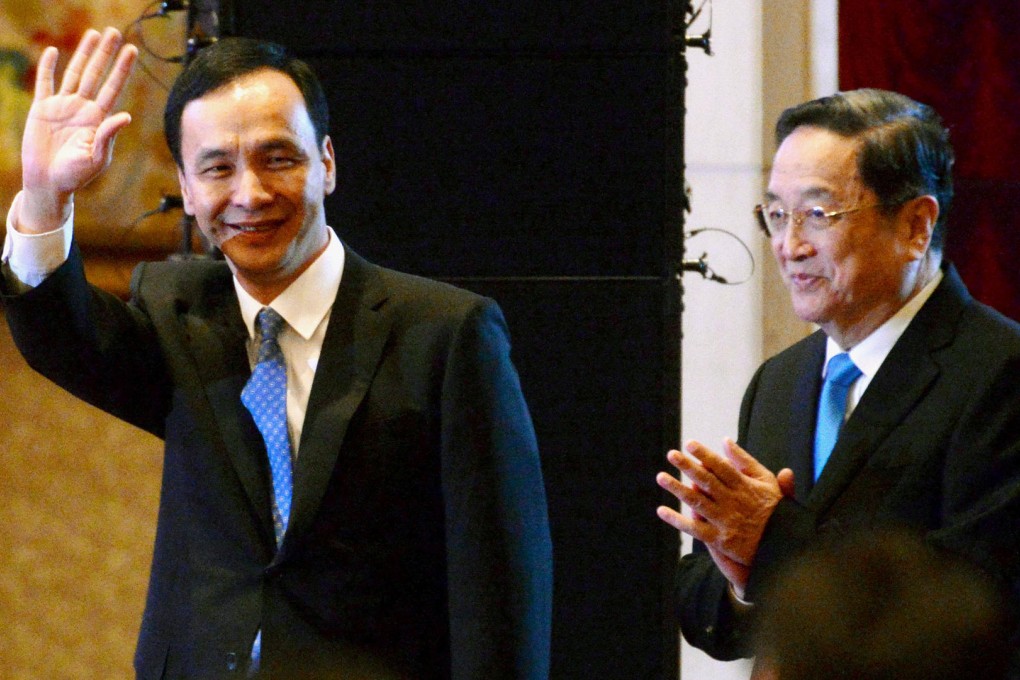KMT chief Eric Chu hopes for bigger global role for Taiwan
Cross-strait consensus could help island play part in regional projects like AIIB, Eric Chu says

The head of Taiwan's ruling party expressed hope yesterday that the island could play a bigger role in the global community based on a crucial cross-strait consensus.
The appeal by Kuomintang chairman Eric Chu Li-luan was expected to get a positive response from Communist Party general secretary Xi Jinping during their talks in Beijing today, analysts said. Chu, who is leading a 100-member delegation, was due to leave Shanghai for Beijing yesterday and meet Xi at noon today before returning to Taiwan at 8.30pm.
Chu said Taiwan should be able to play a vital role in regional economic efforts like the Beijing-proposed Asian Infrastructure Investment Bank and the "One Belt, One Road" economic initiative, as well as the Regional Comprehensive Economic Partnership. "Taiwan should be able to perform well in terms of business innovation and research, despite its smaller economic scale compared with the mainland," Taiwan's Central News Agency quoted him as saying.
Chu made the comments during the opening ceremony of the 10th KMT-Communist Party forum, held annually since 2006 - a year after a historic fence-mending meeting between then-KMT chairman Lien Chan and then-Communist Party leader Hu Jintao in Beijing.
Yu Zhengsheng , chairman of the Chinese People's Political Consultative Conference, said participants in the forum could discuss ways for Taiwan to join the AIIB, the "One Belt, One Road" initiative and the regional free-trade agreement.
"Such discussions are aimed at jointly increasing the competitiveness of ethnic Chinese and expanding their presence in the international market," CNA quoted Yu as saying.
But he stressed that all proposals should be in the context of the "1992 consensus", in which both sides agree there is only one China but each has its own interpretation of what "one China" is.
